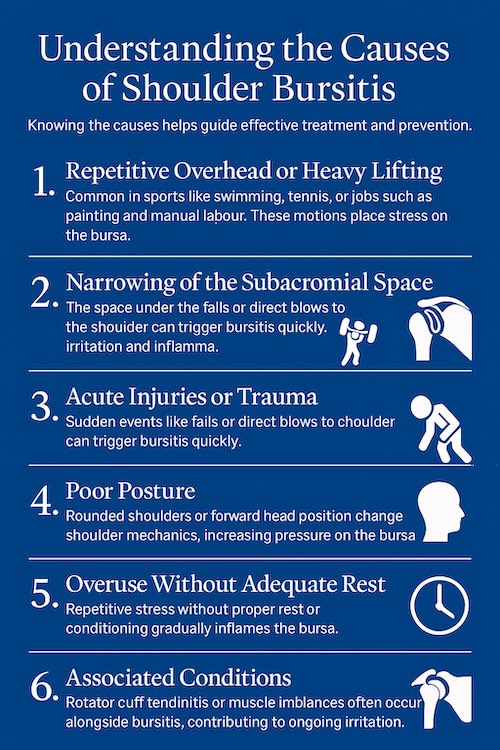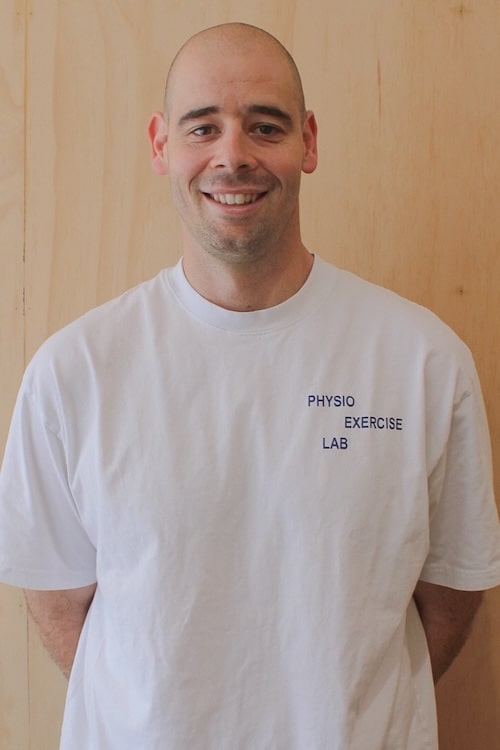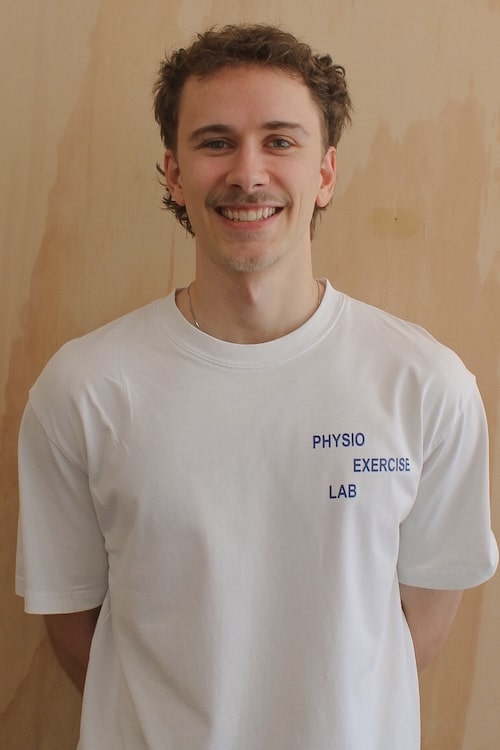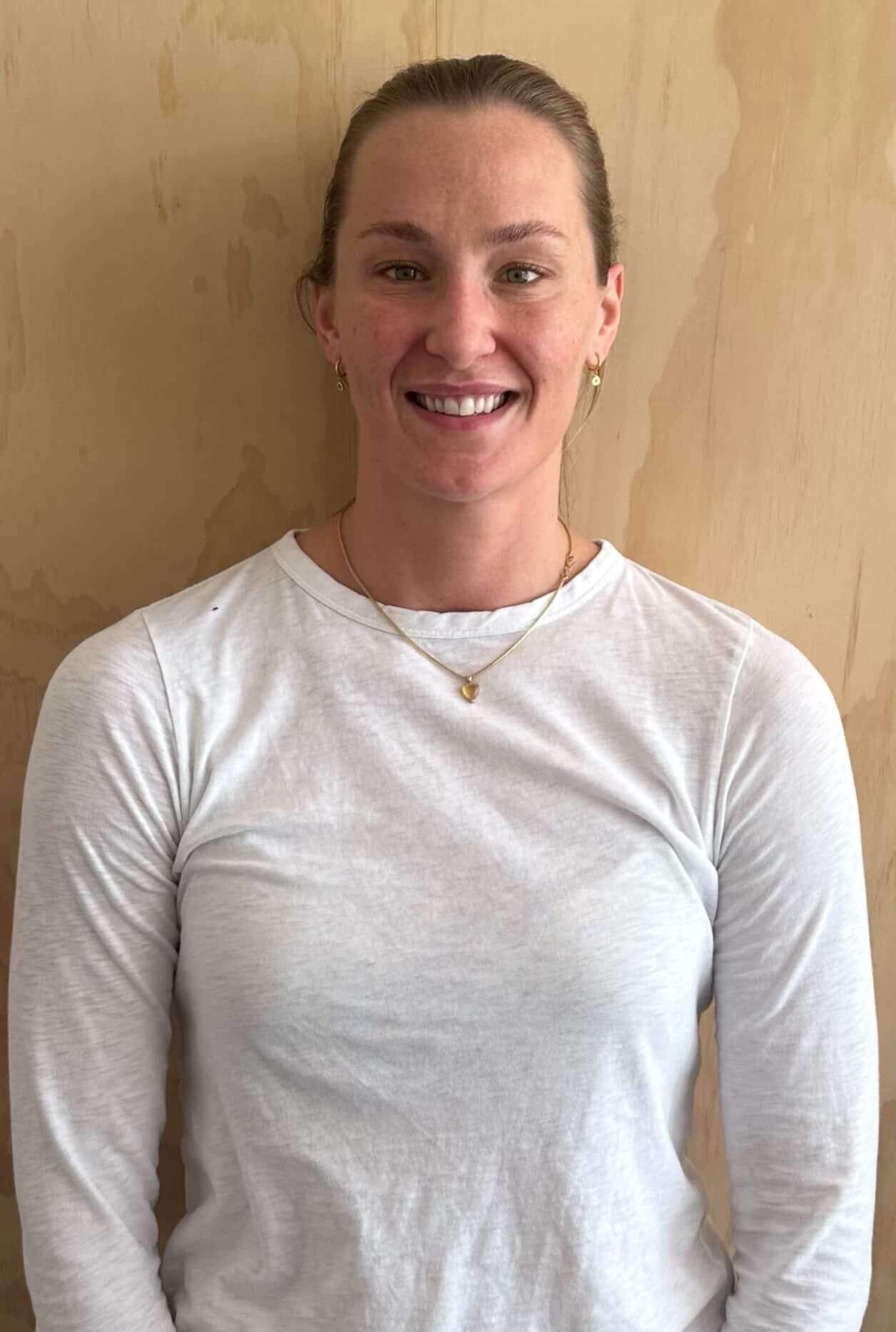Home » Physiotherapy » Shoulder Bursitis Physio
Book a shoulder bursitis physio appointment in Perth online or over the phone at 0493 112 916.
Shoulder bursitis physio helps reduce your pain and restore movement caused by inflammation in the shoulder’s bursa.
Our team draws on years of experience in musculoskeletal injuries, sports physio, and post-operative rehabilitation. We work closely with local GPs and specialists to create a collaborative, patient-centred treatment plan just for you. Whether your bursitis is acute from injury or chronic due to repetitive use, our physio approach focuses on reducing inflammation, improving shoulder mobility, and restoring strength safely.
Book your consultation online or call us today to start your recovery.

With the right physiotherapy treatment, most people experience significant improvements, including:
Understanding the causes helps guide effective treatment and prevention:


Director & Senior Physiotherapist
James started Physio and Exercise Lab after many years working in private practice; gaining experience in a vast range of sports and musculoskeletal injuries, post-operative orthopaedic rehabilitation, and hydrotherapy. He enjoys treating a variety of conditions coming through the clinic and is skilled in dealing with neck and; back pain, upper and lower limb injuries, vertigo and concussion, functional gym-based strengthening, as well as exercise/load prescription and training planning.

Physiotherapist
Kade has joined Physio and Exercise Lab after working at Albany Health Campus as an inpatient and outpatient Physiotherapist. Whilst working in Albany Kade developed a passion for treating patients with musculoskeletal and neurological deficits and decided to move back to Perth to pursue a career in private practice physiotherapy. Through his time at Albany Health Campus, Kade gained experience dealing in pre and post-operative rehabilitation, and is skilled in treating neck and back, as well as upper and lower limb musculoskeletal conditions.

Physiotherapist
Ella joined Physio and Exercise Lab in 2025 with a background in orthopaedic surgery and musculoskeletal rehabilitation. She has a keen interest in paediatric and adolescent injuries, strength and conditioning, cycling related injuries and functional neurological disorders. Ella also enjoys supporting women and older adults to improve their strength, fitness, and confidence through achievable, goal focused exercise programs. Ella has experience treating a broad range of musculoskeletal conditions and uses a blend of manual therapy, dry needling, targeted exercise rehab, education and strength and conditioning programs to improve patients understanding of their condition, build strength and effectively manage pain.
Shoulder bursitis physiotherapy is a specialised rehabilitation programme designed for individuals experiencing inflammation of the shoulder bursa. The programme focuses on restoring strength, flexibility, and function to the shoulder, using a combination of targeted exercises, manual therapy techniques, and education on movement strategies and injury prevention to ensure effective and lasting recovery.
An ACL physiotherapy session typically includes:
Your second consultation, scheduled shortly after the initial visit, offers an opportunity for feedback and questions. A streamlined re-evaluation is conducted through a physical assessment. Subsequent consultations are geared towards supporting your recovery and achieving optimal outcomes for your pain or injury.
The time frame for improvement varies depending on the individual’s condition and response to therapy. Some may notice improvements within a few sessions, while others might need a longer period of consistent therapy.
Wearing comfortable clothing and shoes that allow for movement is recommended. Review our guide on what to what to wear to a physio appointment for more specific recommendations.
It’s also helpful to bring a list of your current medications and a summary of your medical history, including any diagnostic tests related to your vestibular condition.
There are no cancellation fees or 24-hour notice requirements. Just give us a call if you can’t make it to your appointment.
A doctor’s referral is typically not required to visit us unless your condition is associated with Workers Compensation, Motor Vehicle Injury, Veterans Affairs, or a Medicare Enhanced Primary Care plan. In most cases, you can directly schedule an appointment as all our physiotherapists are primary contact practitioners, capable of providing comprehensive care without the need for a referral.
To access physiotherapy services through Medicare, you must have a referral from your GP under the Chronic Disease Management Plan, often referred to as an Enhanced Primary Care Plan (EPC). This plan is required for Medicare coverage when seeing a physiotherapist.
For more information on eligibility and how to claim, read our blog explaining how medicare can be used for physio.
As a person seeking healthcare in WA, you have the right to access, safety, respect, partnership, information, privacy, and the ability to provide feedback. For more in-depth information relating to your rights, review the Australian Charter of Healthcare Rights.
We prioritise your privacy. Our strict privacy policy ensures the confidentiality of your personal information, using it solely for your healthcare. If you have any privacy concerns or questions, please reach out, and we’ll address them promptly. Your trust is crucial to us.
Review our privacy policy here.
If you have any questions relating to our services or any feedback for our team, please get in touch with us via phone, email, or contact form.